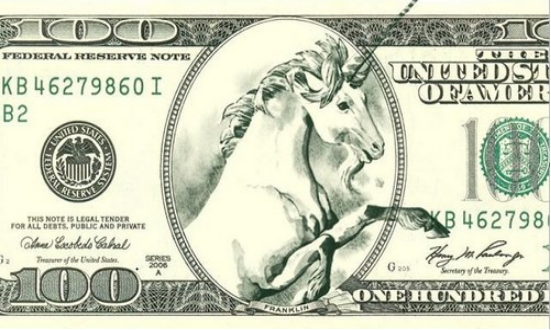
It has been a decade since the emergence of the Unicorn designation, which is the positioning of start-ups by venture capital (VC) in the United States. A "unicorn" is a technology startup that is less than 10 years old but is valued at more than $1 billion and is not listed on the stock market. In recent years, some "unicorn" companies in the United States have risen rapidly and attracted a large amount of investment under the attention of investors and media, making their valuations soar. At present, the number of unicorns in the United States has reached 532, which is more than 13 times the number of 10 years ago.
However, some market watchers are concerned that these highly valued "unicorns" may be at risk of becoming a bubble. The key problem is that in the context of low interest rates, corporate valuations are high, and physical size cannot catch up with valuations. This has raised concerns about the sustainability of these companies and the reasonableness of their valuations.
On the one hand, many U.S. "unicorns" are highly valued without making a profit, causing investors to question their business models and sustainability. As market competition intensifies and investors become wary of risky investments, more and more "unicorn" companies are facing the risk of capital shortages and valuation adjustments. They may struggle to continue attracting capital, which could lead to valuation adjustments and business failures.
On the other hand, some "unicorn" companies have failed to perform after going public, further fueling market fears of a bubble bursting. Entrepreneurs and investors are looking back at past bubble bursts, with some comparing America's "unicorn" bubble to the dotcom bubble of 2000. That bubble burst led to the bankruptcy of many highly valued technology companies, sending a huge shock through the entire market.
While the current situation has not reached that level of alarm, some observers warn that investors and companies alike should remain vigilant against the risk of a bubble bursting.
In addition, slowing global economic growth and trade tensions have also put pressure on the development of U.S. "unicorn" companies. These factors exacerbate investor uncertainty and make investors more cautious about "unicorn" investments, further increasing the risk of a bubble bursting.
In this regard, Erin Lee, founder of Cowboy Venture Capital Company based in Silicon Valley, published an article entitled "Welcome to the Unicorn Club after 10 years" on the company's official website on the 18th, pointing out that the situation has changed after interest rates turned to an upward trend. In the United States, many companies have fallen on hard times and even closed down, such as Zumpizza, which used to be a unicorn company selling pizza made by robots.
According to statistics, many enterprises have become "unicorns" in the period of near-zero interest rates, and about 40% of enterprises in the current secondary circulation market are traded at a valuation of less than $1 billion. Lee and others believe that the number of unicorns with insufficient working capital will increase, and there will be more sudden bankruptcies in 2024.
Previously, according to Japanese media reports, the flow of funds around start-ups is changing, and unlisted companies with a valuation of more than $1 billion, known as "unicorns," are now appearing on average seven per month globally, 80% less than the peak in 2021. There are also many companies that are in trouble due to monetary tightening. The U.S. venture capital industry has shifted its focus to identifying and nurturing promising companies. With the Fed rapidly raising rates, things have changed dramatically. According to data from the United States Dilocky Corporation, the amount of funds raised by U.S. IPO companies in 2022 is $22 billion, which is more than 90% less than in 2021. 2023 will also continue to be sluggish. Monetary tightening makes it difficult for investors to take risks, and listed unicorns with weak earnings bases are hard to buy.
In general, America's "unicorn" bubble is at risk of bursting. Although there are no signs of a large-scale rupture, the increased regulatory and investment evaluation of highly valued companies, as well as the uncertain global economic environment, coupled with market concerns about the risk of bubbles will continue to exist, and investors will be more cautious in evaluating the business models and valuations of "unicorn" companies, and the investment environment will be more challenging.

Since 2022, the Fed has cumulatively reduced its balance sheet by $2.4 trillion through quantitative tightening (QT) policies, leading to a near depletion of liquidity in the financial system.
Since 2022, the Fed has cumulatively reduced its balance sh…
On December 11 local time, the White House once again spoke…
Fiji recently launched its first green finance classificati…
Recently, the European Commission fined Musk's X platform (…
At the end of 2025, the situation in the Caribbean suddenly…
The U.S. AI industry in 2025 is witnessing a feverish feast…